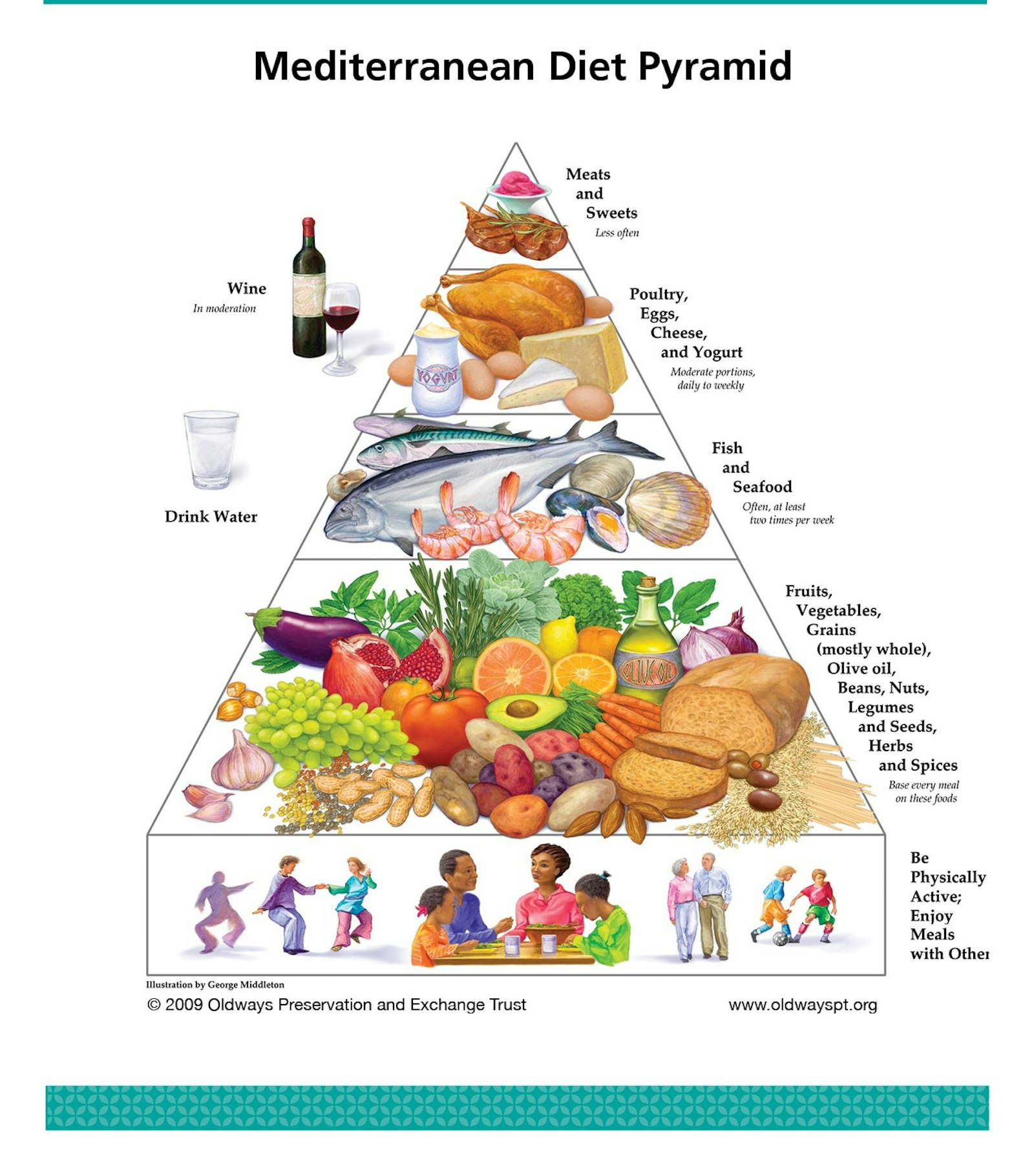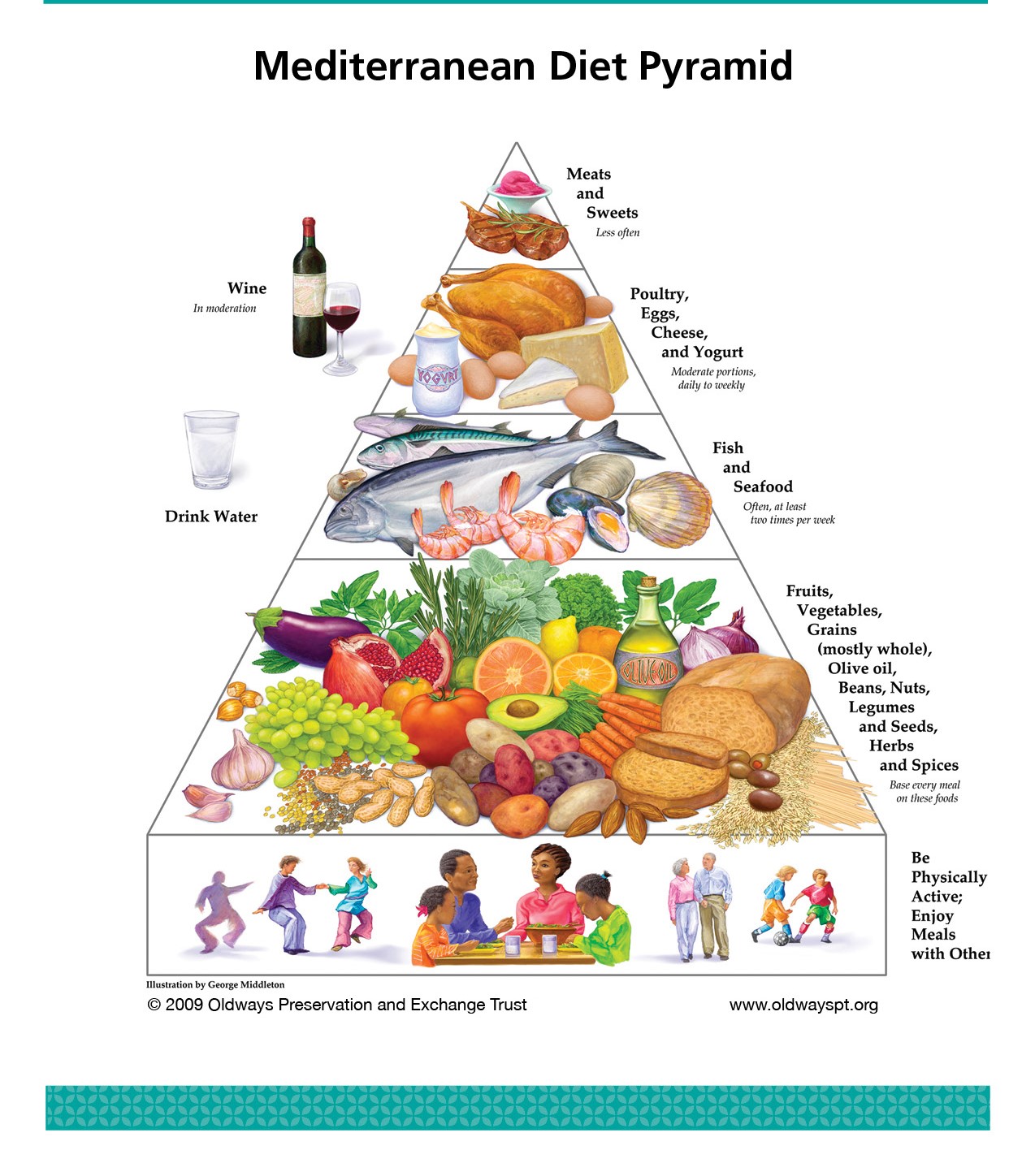


The Mediterranean Nutritional Plan
Good for Glucose control, Brain and Heart Health
The Mediterranean nutritional plan can be described as a dietary pattern characterized by a high consumption of plant-based foods, with Olive oil as the main fat source, the plan includes a low to moderate consumption of fish, low fat dairy products, and poultry, low consumption of red and processed meats, and low to moderate consumption of wine with meals.
The American Diabetes Association and the American Heart Association recommends the Mediterranean diet for improving blood glucose control and reducing heart issues. The eating plan bring about these effects because of the high quality of clean, unprocessed food intake. Every nutritional plan should be individualized, taking into consideration the patient’s height, weight, and resting metabolic rate, this will help to ensure you are getting your recommended daily allowance of calories.
Another reasons that the Mediterranean eating plan is so effective at disease prevention and health restoration, is because the eating plan does not eliminate sugar, sweetened drinks, processed meats, refined grains, refined oils, and any other highly processed foods.
Reference
Golden, A., (2020). Treating Obesity in Primary Care. Pg. (116 – 117) Springer Publishing, Switzerland, AG.
Mediterranean diet for type 2 diabetes: cardiometabolic benefits - PubMed (nih.gov)
Share this post: